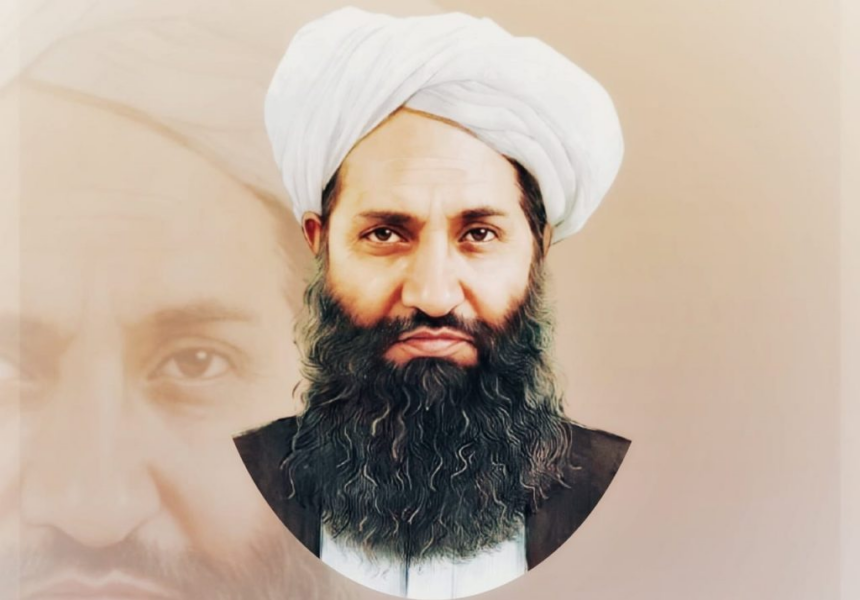RASC News Agency: Reports indicate that Mullah Haibatullah Akhundzada, the elusive leader of the Taliban, has expressed a willingness to engage with the United States while simultaneously issuing a veiled threat of renewed warfare should Washington’s demands overstep their bounds. In a speech delivered on Wednesday, February 25, Mullah Haibatullah reaffirmed the Taliban’s readiness to establish diplomatic relations with all nations, including the United States, pledging adherence to mutual agreements. However, he underscored that such engagements must align with the group’s own terms and conditions.
This statement comes amid reports that a high-level U.S. delegation recently traveled to Kabul, exerting pressure on the Taliban to either return abandoned American military hardware or permit a renewed U.S. presence at Bagram Air Base. In a defiant response, Mullah Haibatullah categorically rejected the notion of surrendering what he referred to as “war trophies” to any foreign power. Sources further reveal that Haibatullah explicitly warned that if U.S. engagement is perceived as interference rather than cooperation, the Taliban might reconsider their stance and resort to armed resistance.
The mounting tensions follow a recent visit to Kabul by the U.S. Special Representative for Hostage Affairs, accompanied by Zalmay Khalilzad, during which they met with key Taliban officials. According to insiders, Mullah Haibatullah is deeply frustrated by Washington’s growing engagement with the Haqqani network, as the U.S. delegation held discussions exclusively with Taliban leaders in Kabul while deliberately bypassing Kandahar the stronghold of Haibatullah’s leadership. Ironically, despite Haibatullah’s previous assertions that the Taliban had no interest in engaging with the U.S., the group has repeatedly called for the reopening of the American embassy in Kabul in recent months.
Meanwhile, Taliban opposition groups continue to label the regime as a U.S. proxy force in the region, dismissing its rhetoric as mere political maneuvering. Although the Taliban have publicly declared that they no longer consider the United States an adversary and that “the era of war has ended,” analysts interpret such statements as a reflection of the group’s underlying apprehension over escalating American pressure.
Escalating U.S. Pressure on the Taliban: Mullah Haibatullah Warns of Renewed Conflict






